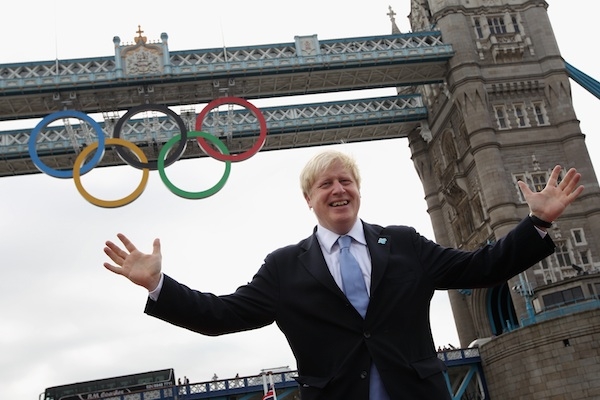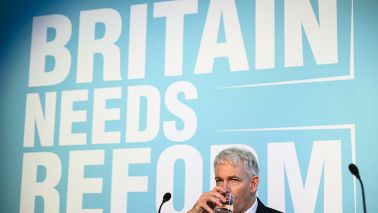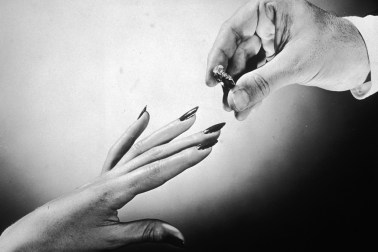It is an odd summer in Westminster. The political big beasts have stayed around because of the Olympics. Government ministers have international schmoozing to do; and in any case, like their senior shadows, they would not want to risk being seen scrambling back from abroad in the event of a national emergency. They are not, however, expecting to be able to score many political points while the Games are in progress. Only one office-holder is making full use of them: Boris Johnson.
The Mayor of London has been doing what he does best — directing the emotional energy of a crowd. His performance has reminded me of a conversation I had several years ago with one of his former colleagues who had known him in several guises. The man, who had sat on the Tory benches with Boris, doubted that the party would ever go for him as leader; he would be too much of a risk and not enough of a team player. But, my source said, there is one scenario in which they would swallow their doubts.
He sketched out the circumstances in which the Tory MPs would send Boris through to the final round of a leadership contest. ‘The party will be ten to 15 points behind, facing certain defeat a year or so before an election. At that point, their survival instincts will kick in and they’ll think that Boris might just be the one who’ll save their seats.’
We’ve not reached this moment yet: the election is still more than two years away and Labour’s average lead in the polls is only in single figures. But Tory MPs are becoming increasingly despondent about their party’s chances in 2015; the argument that the party is actually doing reasonably for mid-term — polling only three points behind its 2010 general performance — cuts little ice. Faced with a contracting economy, after a series of political defeats, a growing number of MPs are reaching for the panic button.
A growing number of MPs reckon that Boris could add several points on to the party’s ratings — although polling evidence has yet to back them up on this. When Tories gather together, he tends to be the topic of their conversation.
The idea of achieving a majority through Boris ex machina was around even before the Olympics. But it has become even more pronounced since the Games commenced. After his bravura Hyde Park performance welcoming the Olympic torch with a series of gags, the pick of which was ‘We’re going to win more gold, silver and bronze than you’d need to bail out Greece and Spain together’, one Tory minister said to me: ‘I am now certain — Boris is going to be our next PM.’
This faith in his vote-winning powers comes partly out of personal experience. All Tory MPs were ordered to go canvassing ahead of the mayoral election in May and they were struck by how often they found Labour voters who were backing Boris. Indeed, Boris polled 12 points higher than the Tory candidates for the London assembly, 44 per cent to 32 per cent.
His critics are quick to point out that Boris had the advantage of fighting an exceptionally weak Labour candidate in Ken Livingstone. But the fact that he has won twice in the left-leaning capital has given him the aura of a winner — and the Tory party loves winners.
To some, all this talk of Boris as prime minister is a flight of Olympic fantasy. The more sober-minded around him point out that he has pledged to do four years as Mayor, which would take him off the national scene until 2016. Boris-sceptic Tory MPs, meanwhile, argue that all this talk of him as a future leader is simply a product of the fact that there is no obvious alternative to Cameron.
Those loyal to the leadership, after delivering the obligatory praise for Boris as a ‘character’ — one of the most double-edged words in politics — point out that he’s hardly likely to play well with precisely the voters the Tories need at the next election: city-dwellers in the West Midlands and the North.
Of these objections, the first has most force. There is nothing to say that the leader of the Conservative party has to be in parliament. But the Prime Minister certainly has to be. This means that if Boris were to be a pre-election game-changer, he would have to get back into parliament by 2014 at the latest.
If any politician could pull off this flagrant a breach of an electoral commitment, it is Boris, a man whose declared position on cake is ‘pro-having it and pro-eating it’. If any other politicians attempted such a volte-face, they would be condemned for putting their career before their word. But, for the moment at least, the usual rules don’t seem to apply to Boris. Who else in this politically puritanical age could get away with being paid a quarter of a million pounds to write a newspaper column on top of their public duties?
Intriguingly, Boris himself is laying some of the necessary foundations for a tilt at the top job. He is applying balm to those ministers left bruised by the leadership. Euro-sceptics are tickled by notes from him pronouncing ‘death to the euro’ and there is for the first time a cadre for him inside the parliamentary party. One backbencher remarks that ‘people chanting “Boris, Boris” in Hyde Park was a bit of a turning point.’
All the speculation about Boris might die down when the Olympic flame leaves London. But it still shows that Conservative MPs are becoming frantic about holding onto their seats. Perhaps, more importantly, it indicates that, when the Tories do come to choose a successor to Cameron, a moment which might still be half a dozen years away, the party will go for a change in approach as well as personnel. Having had a disciplined, perfectly coiffed, cautious leader, the party will be in the mood for something completely different.
SPECTATOR.CO.UK/COFFEEHOUSE
For the latest on the Boris and Dave show.







Comments